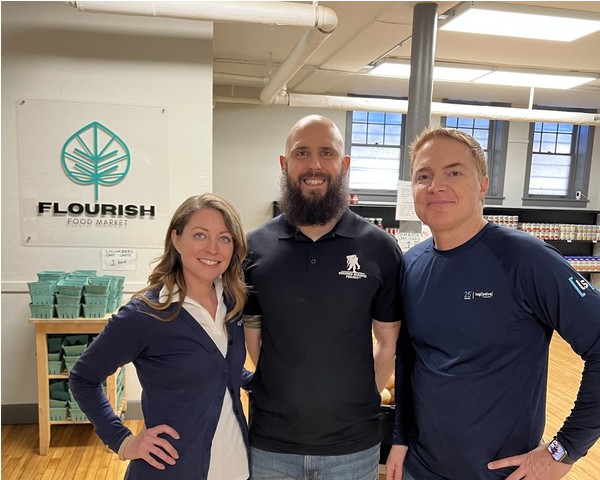Didn’t We Already Plan?
By Phil Almeroth | Business Transformation Capability Lead
In doing Project Work (recall from past posts: Projects, Operations, and Research are 3 different kinds of work), a good schedule and estimates are necessary to get off to a strong start. But many make the mistake of believing the schedule and estimates, once completed, can be framed and will guide the work through the rest of the project. As a Project Manager, part of your job is to instill continuous planning into the work of your project. As a project participant, your estimates are important to project success.
Over the years, I’ve compiled some estimating “rules”; these are not all original to me. Like everyone else, I’ve accumulated and adapted wisdom gleaned from others, and assembled them into a list of reminders for me when leading project teams. I’m sharing them with you; feel free to take them and adapt them for how they fit with your projects.

- Everything takes longer than you think (sometimes a lot longer)
- Everything takes longer than it takes
- Thinking about everything takes longer than you think
- Estimates from others are always optimistic (generally REALLY optimistic), therefore schedules are (almost) always wrong
- If you underestimated an early task when you created the schedule, you probably underestimated middle and later tasks. Revisit the whole schedule ASAP when you find schedule (estimate) errors.
- People (especially leadership) REALLY do use your estimates for planning. Be able to express your level of confidence on estimates when you provide them to others.
- A good schedule and estimate confidence level is 80% for near term deliverables, 60% for long-term deliverables. At a minimum, revisit the schedule and revise your estimates after the What is Needed (Requirements) and How to Meet the What (Design) are agreed upon to improve on the early confidence levels.
- Don’t let yourself be bullied into committing to something you cannot achieve.
- Don’t bully someone else into committing to something they cannot achieve.
- Sitting on bad news only makes it stink worse. Let your sponsor know ASAP if there is a significant or potential problem in meeting the schedule. Reality eventually overtakes early optimism in the schedule. Note: It’s an art to not over-do this.
- Let team members know that you expect ASAP notification of schedule problems or risks.
- Most people’s estimating skills improve with experience; some don’t.
- Learn your own estimating flaws and compensate for them.
- Learn the flaws in your new estimations and compensate for them. Repeat continuously while employed as a project manager.
- Learn others’ estimating flaws and learn to compensate for them. Mentor them on improving their flaws and then compensate for their improvements. Repeat continuously while they are on your project team.
- Some people are hedging their estimates, some people are expecting others to hedge the estimates, and some people are doing neither. It’s an interesting problem to get all of them to stop this behavior and have people give honest, best-effort estimates. Like it or not, we have to deal with these “real world effects” on the projects we manage.
- Be wary of anyone who believes in “all ya gotta do” thinking, and and/or wants 100% confidence in an estimate. Even with a really good plan and data, 90% confidence is an exceptional human achievement for any complex task.
Volunteering Opportunities in 2024
Join Logisolve as we volunteer at the Flourish Food Market every first Wednesday of each month throughout 2024. We’re seeking volunteers from our network to support various shifts, available from 11 AM to 1 PM and from 1 PM to 3:30 PM. There’s dedicated workspace on-site, which can be used before or after either shift. This is an excellent opportunity to contribute to the Minneapolis community. If you’d like to learn more or want to sign up for a shift, please reach out to Ben Hoffman at bhoffman@logisolve.com. Your interest and consideration are greatly appreciated!



Available Positions
If you have individuals in your network that may be a fit for any of the positions below, this is a great time to make a referral. Use our referral email address: referrals@logisolve.com
Below are some of our active Client Opportunities. There are additional positions available. Please reach out to the email above if you’re interested in learning more!
Project Management
- IT PM/SM – Financial/Insurance industry experience – Hybrid, Minneapolis
Business Analysis
- Business Analyst – Annuities experience – Hybrid, Minneapolis
- Business Systems Analyst – Product Configuration experience – Hybrid, Western Suburbs
Digital Solutions
- Automation Engineer – Hybrid, Minnetonka
- Full Stack Developer – React, Typescript, GoogleBigQuery, SQL experience – Remote
- DevOps Engineer – Cloud Native (Azure), App Insights – Local to Twin Cities
- Site Reliability Engineer – coding experience, Python, Java, tech engineering experience – Remote
- Adobe Marketo Developer – Hybrid, Minneapolis
Data
- Business Intelligence Developer – Contract to Hire – Hybrid, Minneapolis
- Data Integration Lead – Contract to Hire – Hybrid, Minneapolis
- Data Engineer – SSIS, SQL, highly preferred Health Catalyst experience – Remote
